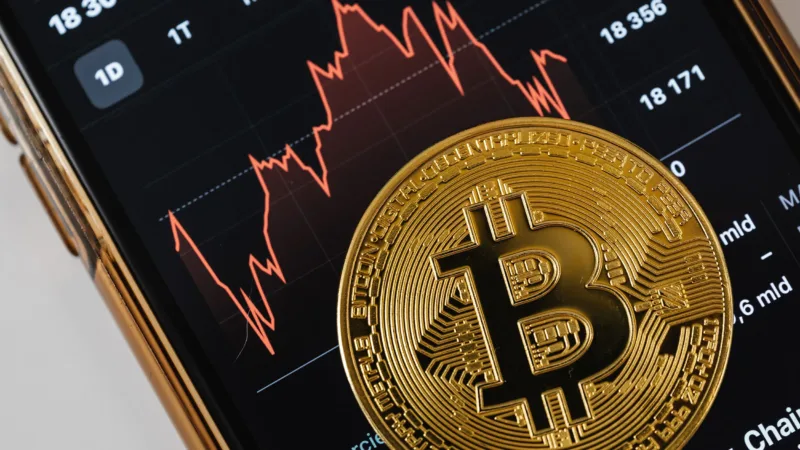The rise of cryptocurrency has brought with it immense opportunities for traders and investors, but it has also created a breeding ground for scams. With the decentralized nature of crypto assets, users often find themselves vulnerable to a wide range of malicious activities. From fraudulent exchanges to phishing attacks, the risks of being scammed in the crypto space are real, and it’s crucial for users to be vigilant. Fortunately, there are steps you can take to protect yourself from falling victim to scams when using crypto exchanges.
The Importance of Choosing a Reliable Crypto Exchange
The first line of defense against scams starts with choosing a reputable crypto exchange. Not all platforms are created equal, and while some exchanges offer robust security measures and a transparent operating history, others may have dubious practices. Reliable exchanges are typically regulated, or at least follow industry best practices for security. They should have clear policies on how they handle user funds, user verification processes, and measures to prevent fraudulent activities.
Before using any exchange, take the time to research its history, read reviews from other users, and look for signs of a legitimate operation. Established platforms like Binance, Kraken, Coinbase, and Bitstamp have proven track records of transparency and security. On the other hand, if an exchange promises unrealistically high returns or has limited public information about its team and operations, this is a red flag that should not be ignored.
Check for Proper Regulation and Licensing
Regulation is one of the strongest indicators of an exchange’s legitimacy. While cryptocurrencies are still relatively new and many jurisdictions haven’t fully caught up, reputable exchanges make it a point to comply with local laws and financial regulations. These exchanges will often be licensed by financial authorities or work within a regulatory framework, providing users with some level of assurance that their assets are handled in a secure and compliant manner.
Before using an exchange, check whether it operates under the purview of any financial regulatory body. Licensed exchanges are typically subject to regular audits and must meet strict standards, including ensuring the security of user data and assets. It’s also advisable to confirm whether the exchange offers services in your country and adheres to the specific regulations that apply to crypto transactions in your jurisdiction.
Use Two-Factor Authentication (2FA)
Enabling Two-Factor Authentication (2FA) is one of the simplest yet most effective ways to secure your crypto accounts. This security feature requires users to provide two forms of identification before accessing their account or making transactions. Typically, this involves a password and a unique verification code sent to a device such as a phone.
While 2FA cannot guarantee protection from all threats, it significantly reduces the likelihood of an account being compromised by hackers or fraudsters. Even if someone manages to steal your password, they will still need the second factor to access your account, making it much more difficult for scammers to gain control.
Verify URLs and Look for SSL Encryption
Phishing attacks are one of the most common ways that scammers target crypto users. Phishing occurs when a malicious actor impersonates a legitimate crypto exchange or service to steal your login credentials or private keys. They often do this through emails, fake websites, or pop-ups that look like official communication from trusted exchanges.
To avoid falling for phishing scams, always double-check the URL of the exchange you’re using. Ensure it’s the correct web address and that the website is encrypted with SSL (Secure Socket Layer), indicated by “https://” in the URL and a padlock icon in the address bar. Avoid clicking on links from unsolicited emails or messages. Instead, manually enter the website address into your browser to ensure you’re visiting the correct platform.
Never Share Your Private Keys
Your private keys are the most sensitive information in the crypto world. They give you full control over your cryptocurrency holdings. If someone gains access to your private keys, they can withdraw your funds without your permission.
Reputable exchanges will never ask for your private keys, and you should never share them with anyone. Be wary of platforms or individuals who request this information, even if they claim to represent an official exchange. Scammers often impersonate exchange customer support to convince users to share private keys. Always keep your private keys in a secure, offline location, such as a hardware wallet, and avoid storing them online or on platforms that may be vulnerable to hacking.
Look for Insurance or Asset Protection Policies
Some exchanges provide insurance or asset protection policies as an additional layer of security for their users. While these measures cannot guarantee protection against every type of scam, they can offer peace of mind if the exchange is compromised.
Exchanges with insurance policies or protection plans often outline the specifics of what is covered, such as if funds are lost due to hacking or technical issues. Be sure to understand the terms of any protection policy and whether it applies to your country or region. This can be a helpful safety net should something go wrong.
Avoid “Too Good to Be True” Offers
In the crypto world, you will often encounter offers that seem too good to be true, such as promises of “guaranteed” profits or high returns with minimal risk. These offers are a hallmark of scams and fraudulent schemes, such as Ponzi schemes or pump-and-dump operations.
Legitimate exchanges will never guarantee profits or promise returns on investments. If an offer sounds too good to be true, it probably is. Always exercise caution when encountering such schemes, and conduct thorough research before making any decisions. A trustworthy exchange will be transparent about risks and will never make unrealistic promises.
Keep Your Software and Security Tools Updated
Scammers are constantly finding new ways to exploit vulnerabilities in exchanges and software. One effective way to protect yourself from scams is by keeping your software, including your browser, wallet, and operating system, up to date. Security patches are often released to address newly discovered threats, and regularly updating your software ensures that you’re protected against the latest risks.
Additionally, consider using a reputable antivirus program and a VPN (Virtual Private Network) to further secure your online activities, especially when accessing exchanges from public or untrusted networks. These extra measures can help shield your personal information from malicious actors.
Report Suspicious Activity Immediately
If you notice any suspicious activity on your crypto exchange account, such as unauthorized withdrawals, unfamiliar logins, or unusual transactions, report it immediately to the exchange’s customer support team. Most reputable exchanges have dedicated support channels and quick response times for these types of issues. The quicker you act, the better the chances of recovering lost funds or preventing further damage.
Conclusion
While the crypto space offers significant rewards, it also comes with risks, especially when it comes to scams. By choosing a reputable exchange, securing your account with 2FA, double-checking URLs, avoiding phishing schemes, and keeping your private keys safe, you can significantly reduce the risk of falling victim to crypto fraud. Always be cautious when confronted with offers that seem too good to be true, and keep your security tools updated. By taking these steps, you can enjoy a safer and more secure experience when trading and investing in cryptocurrency.



